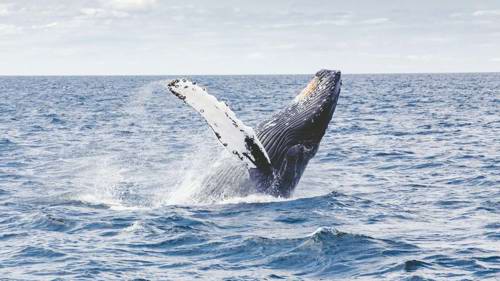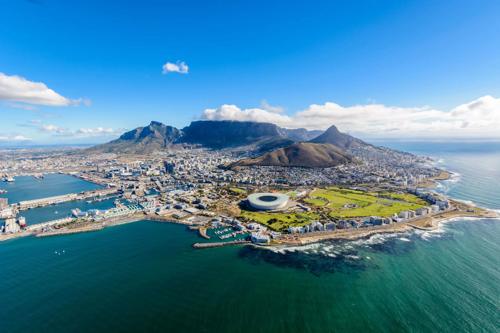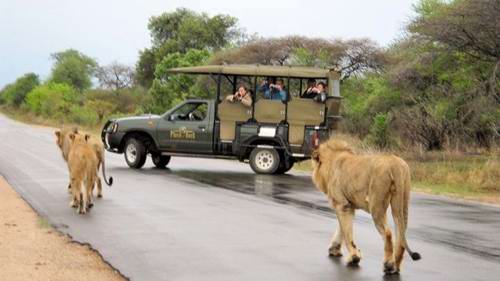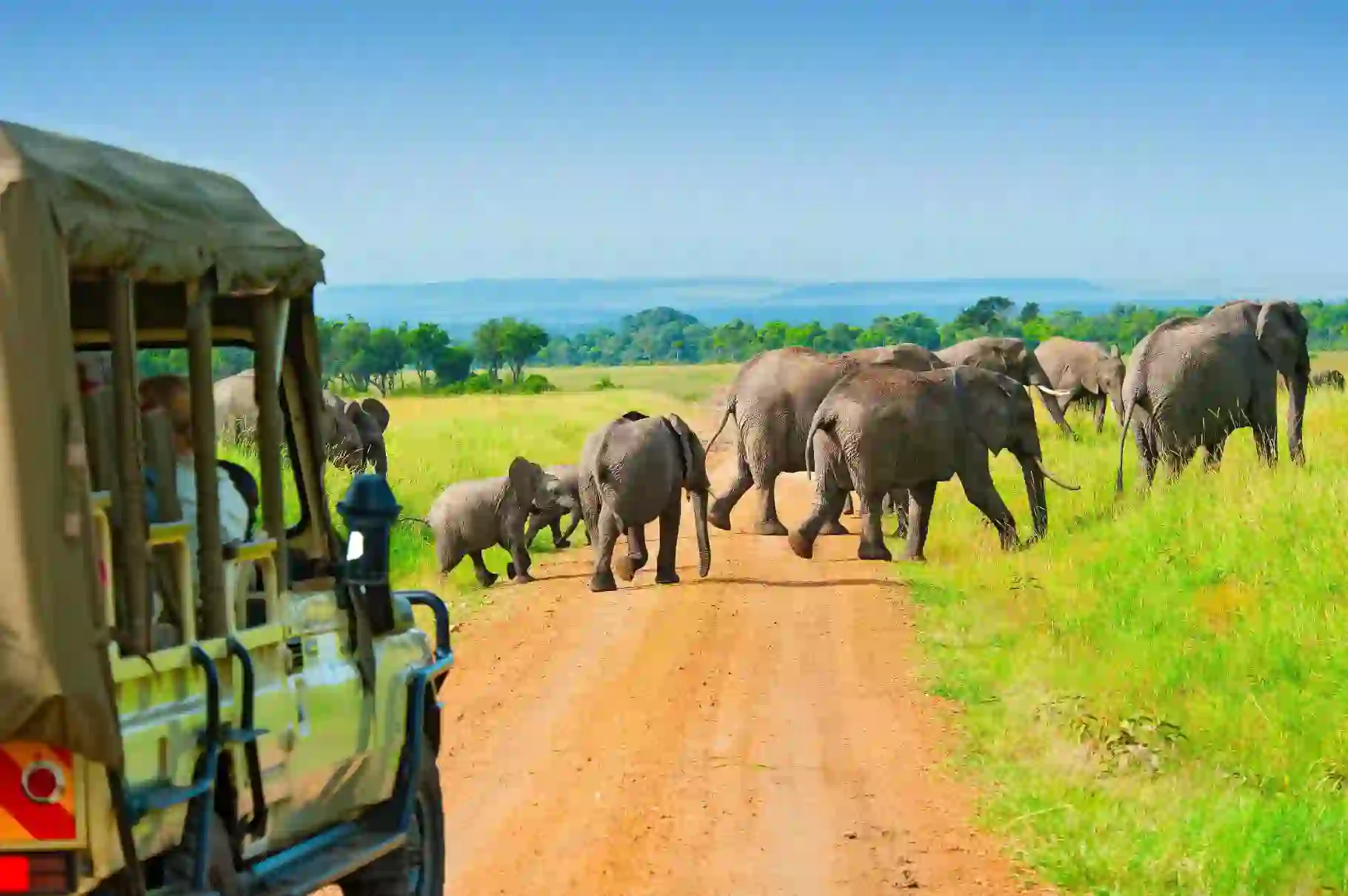
Best Time to Visit South Africa
Planning to visit South Africa, but not sure when to come? Well, thankfully the country is a year-round destination, with plenty to do and see in every season. There are some considerations to bear in mind, however, before you book those flights - especially if you plan to go on safari. Being located in the Southern Hemisphere, the seasons are opposite to those in the UK, meaning summer here is in the months of December to February, while winter is in July to August.
South Africa has a generally warm climate that doesn't change too much between seasons, although winters can be windy. The country's north tends to be cooler than its south, and the coasts cooler than the interior. It is generally dry, with the majority of the country seeing no more than 20 inches of rainfall each year.
The biggest draw for many visitors is the chance to spot the 'Big Five' on safari, but there are a wealth of other incredible experiences to enjoy, from wine tasting in the Western Cape to embracing the local culture on a visit to a traditional village. However you plan to spend your holiday, read on for our guide to the best time to visit South Africa.
Spring (September, October and November)
Weather
The South African spring is from September to November, and sees average temperatures of around 17°C. The weather can vary a lot during this season, with both warm and cold days experienced throughout. The evenings are usually chilly. Spring also marks the start of the rainy season in South Africa, which generally runs from November to March.
Pros
This is one of the country's two shoulder seasons (the other being the autumn months of March to May), so can offer better value for money when it comes to accommodation costs and flights. Spring offers the chance to see the flora along the West Coast in full bloom, making it the ideal time to visit the enchanting Kirstenbosch National Botanical Gardens. Spring is also a great time for wildlife watching, with September in particular often considered the best time to visit South Africa for safari as many animals can be seen out and about and many start to give birth. This is also whale watching season, when southern right whales can be spotted returning from Antarctica.
Cons
There aren't too many negatives when visiting South Africa in Spring. Temperatures do begin to rise towards the end of the season, and the start of the rainy season can put some travellers off the idea of visiting national parks such as Kruger, but the high chance of spotting wildlife makes it worth it.
Events
Spring marks the start of the festival season, with highlights including the Hermanus Whale Festival, the Durban International Blues Festival and street food festivals in Cape Town and Johannesburg.

Summer (December, January, February)
Weather
South Africa's summer months of December to February are usually rainy across the country, with the exception of the Western Cape, which has a Mediterranean-like climate and is hot and dry in the summer. Northern regions often experience thunderstorms at this time of the year. While temperatures often vary significantly region to region, you can generally expect something between 23°C and 27°C.
Pros
It can be said that summer is the best time of year to visit South Africa, for a multitude of reasons. Wildlife regions including KwaZulu Natal are lush and green thanks to the warm and rainy weather, and it's a great time to sip the local produce at the Cape Winelands. It's also one of the best times to visit Cape Town, with beaches such as Camp's Bay and Clifton providing a welcome respite to the hot bustle of the city, and the resident penguins at Boulders Beach delighting visitors from far and wide. With the hot and dry weather along the Western Cape, summer is an ideal time for a road trip along the scenic Garden Route, with stops at historic towns and villages and the flora and fauna surrounding the Storms River making perfect additions to your itinerary.
Cons
While early December is generally quiet, the festive season towards the end of the month is very busy in South Africa, so accommodation, restaurants and activities should be booked as early as possible. As summer is undoubtedly peak season, accommodation can be expensive, particularly during the school holiday of mid-December to early January.
Events
Summer offers plenty of festivals and other events, including the much-loved Up The Creek music festival, where audiences relax on dinghies and other inflatables on the water, and the Cape Town Minstrel Carnival, a colourful and culturally rich celebration of local heritage. January marks the anniversary of two important historical battles, making it a great time to visit the Battlefields of Natal, while the new year is brought in in style with a spectacular firework display at the V&A Waterfront in Cape Town.

Autumn (March, April, May)
Weather
Autumn in South Africa falls in the months of March, April and May. The weather at this time of year is generally pleasant with an average of around 19-23°C, ideal for both indoor and outdoor activities. With the more intense heat of the summer gradually subsiding, it's a great time for those looking to unwind at the beach without feeling stifled. The rain in the north of the country comes to an end, although crisp winds can make the weather feel a little cool.
Pros
Autumn is often hailed as the best time of year to visit Cape Town, as it's comfortably warm but without the summer crowds. It's also a good time to partake in outdoor pursuits such as hiking - perhaps to see the spectacular view from Table Mountain or enjoy the fresh air of the Drakensberg mountains. Wine lovers won't want to miss the chance to visit the Winelands in full harvest season, while the Kalahari is green and full of life.
Cons
Kruger National Park is at its greenest and bushiest at this time of the year, which can make it a little harder to spot wildlife. Still, with the rivers full and given the sheer number of resident animals, you can still expect to enjoy a good number of sightings. If you are planning a trip at Easter, bear in mind that the two-week school holiday will see accommodation snapped up quicker than usual.
Events
With production in full swing, there are harvest festivals to enjoy in the wine producing areas of Franschhoek and Stellenbosch. March is the best month to visit South Africa for jazz aficionados, when the two-day Cape Town Jazz Festival hosts a fantastic mix of local and international artists. Freedom Day takes place on 27 April and commemorates the first post-apartheid elections with a series of parades, parties and braai.

Winter (June, July, and August)
Weather
Winters in South Africa are cool with daily average temperatures of 10-15°C, although there is still usually plenty of sunshine. It is generally dry in most of the country, with the exception of the Western Cape, which often experiences wet and windy winters.
Pros
The winter months are generally the quietest in South Africa, making it a great time to enjoy a value-for-money getaway. It is also a good time of the year to plan a safari - the bush at most game reserves thins out and animals flock to water sources, making them easier to spot. The southern right whales arrive in July and usually hang around until November. From early to mid-August the spectacular wildflowers of Namaqualand, blanketing the usually arid region with a myriad of colours.
Cons
It (almost) goes without saying that winter is not the best time to go to South Africa for a beach holiday, or a lot of outdoor activities in the Western Cape where it can be quite wet. It is also worth noting that, while the winters in South Africa are usually mild, the evenings can be chilly and many of the buildings lack proper insulation - the safest bet is to bring clothes that can be layered.
Events
The National Arts Festival - the biggest art festival in Africa - takes place over 11 days every July in Grahamstown and features theatre, comedy, and street shows. Foodies won't want to miss the annual Knysna Oyster Festival in July, and there is also the J-Bay Open Surf Competition and Oppikoppi rock music festival to enjoy.

With mild winters and activities such as wildlife watching available in every season, it can be said that South Africa is a true year-round destination. Having said that, there are some variables in the weather and the type of attractions on offer, so the best time to visit South Africa is really dependent on the type of trip you are planning. For example, you may like to visit Cape Town in the autumn to take advantage of fewer crowds and pleasant (but not too hot!) weather, go on safari in the spring when the vegetation is sparse, or relax on the West Coast's beaches during the summer months. Need a bit more inspiration? Take a look at our guided tours of South Africa for the very best itineraries throughout the year.
Top South Africa Holidays
- Spot the ‘Big Five’ on open-air game drives through the Kaingo and Welgevonden game reserves
- Experience an optional private dinner of traditional African dishes and watch a performance of dancing and music
- Enjoy a sundowner on Sunset Rock while watching the sky transform
- Flights included
10 days from £2,371 pp
was £2,789 pp
Dates Available
June 2026 - November 2028
Duration
10 days
Depart From
6 airports
Excursions & Visits
8 included
Meals
21 included
- Unwind by the swimming pool overlooking the Makhutsi River or with a complimentary treatment at the spa
- Experience a special dinner in the heart of the bush under the stars
- Venture on seven morning game drives and seven late afternoon game drives with an experienced tracker and guide at the helm
- Flights included
10 days from £2,983 pp
was £3,509 pp
Dates Available
May 2026 - November 2028
Duration
10 days
Depart From
5 airports
Excursions & Visits
16 included
Meals
21 included
- Marvel at the breathtaking coastal landscapes of the Cape Peninsula with a scenic full-day drive and visit Stoney Point's penguin colony
- Four thrilling game drives, in search of the fabled 'Big Five', through a series of award-winning Garden Route reserves
- Taste the finest local labels of the world-famous Cape Winelands with visits to Franschhoek and charming Stellenbosch
- Flights included
12 days from £3,379 pp
was £3,975 pp
Dates Available
September 2026 - November 2028
Duration
12 days
Depart From
5 airports
Excursions & Visits
13 included
Meals
17 included
- Venture in search of the ‘Big Five’ as you travel on three open-air safaris throughout the Kruger and Greater Kruger National Parks
- Enjoy an enlightening wildlife rehabilitation experience and a gentle guided nature walk
- Escape to a dreamy coastal corner of Mozambique for a few days of beach bliss by the Indian Ocean
- Flights included
13 days from £3,451 pp
was £4,059 pp
Dates Available
May 2026 - October 2026
Duration
13 days
Depart From
2 airports
Excursions & Visits
7 included
Meals
29 included
Discover our blog
Behind the Scenes Series: Which safari is right for you?
Get the inside track on how to take your wish-list safari adventure to the next level with expert knowledge from our Head of Product for Africa, Kathy.
Inside our Itineraries Q&A series: Beyond the bushveld with a safari expert
Make the most of your safari experience with insider knowledge courtesy of our trusted partner, Involv Africa, and their specialist guide, Jaco.
A first-timer's guide to a safari
Whether you’re a casual animal-lover or a seasoned naturalist, get safari-ready with this quick and simple guide to your next wildlife-spotting adventure!






